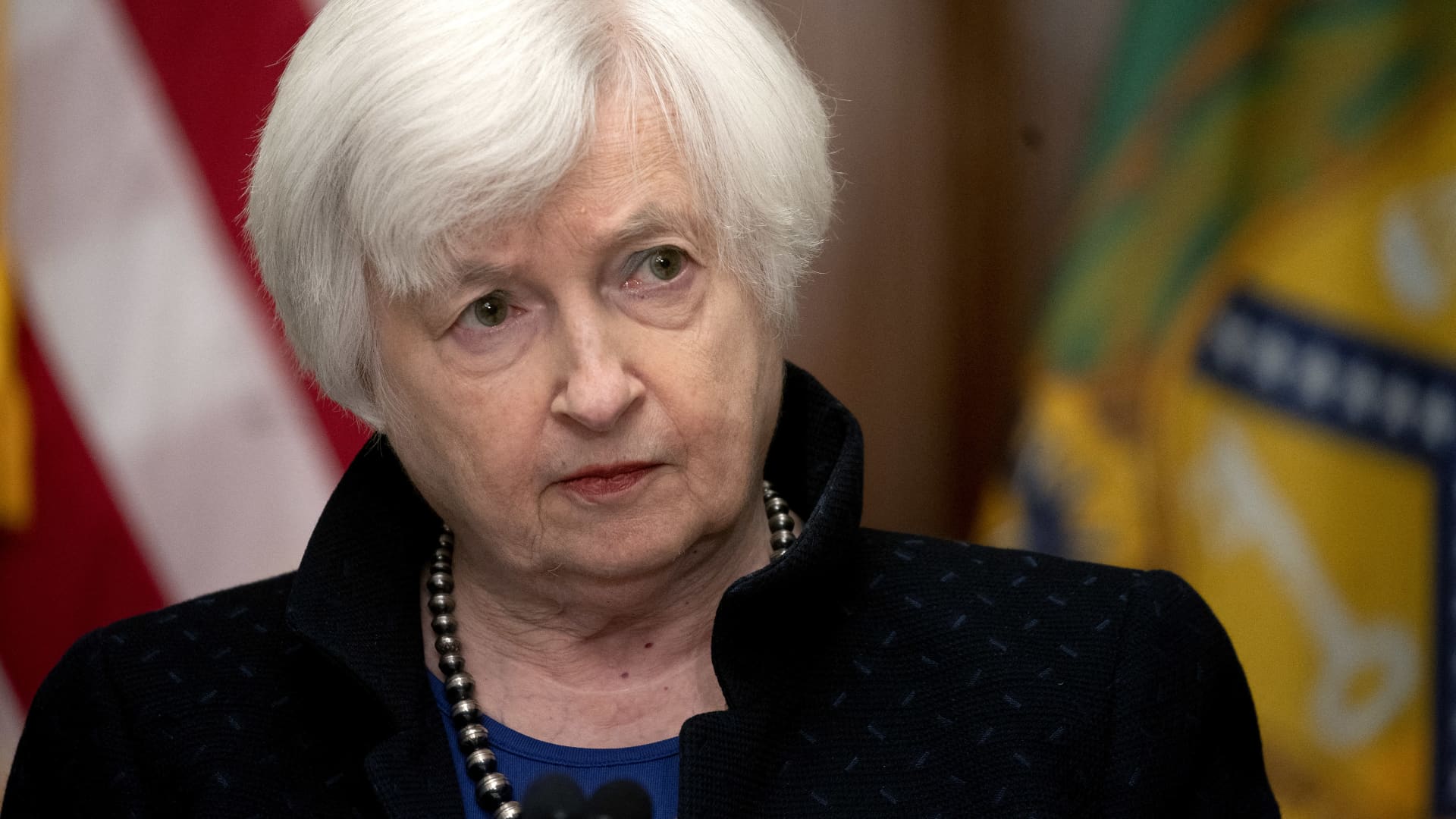WASHINGTON — The Treasury Department’s risk oversight arm on Friday proposed new tools for spotting issues in the U.S. financial system, more than a month after the collapse of Silicon Valley Bank and Signature Bank sparked efforts to prevent further damage to the economy.
The Financial Stability Oversight Council voted to approve a framework on financial stability for public feedback. The plan, which will offer Americans more transparency into the council’s operations and how it identifies systemic problems, will be the first such measure it has released.
“This framework outlines common vulnerabilities and transmission channels through which shocks can propagate through the financial system. And it lays out how the Council considers the tools it will use to address these risks,” Treasury Secretary Janet Yellen said in pre-released remarks.
Yellen said that in trying to prevent problems in the financial system, the council does not “broadly prioritize one type of tool over another.” It plans its response to a given risk following an examination, she said.
“The framework emphasizes the importance of taking a comprehensive and rigorous approach,” Yellen said. “Addressing the diverse range of financial vulnerabilities that exist today – and that may arise tomorrow – requires a broad set of flexible tools.”
The Treasury Department, along with the Federal Deposit Insurance Corp., backstopped depositors as they feared ripple effects from the collapse of SVB and Signature Bank, which catered in part to digital currency exchanges. Federal regulators shuttered both banks last month, seized their deposits, sold both entities to other financial institutions and prevented the largest banking crisis since 2008.
Read more of CNBC’s politics coverage:
The FSOC also voted to issue proposed guidance that would enable it to use congressional authority to designate nonbank financial companies for supervision under the Federal Reserve Board when necessary.
Yellen has not identified what companies could be designated, only saying that overseeing more institutions “is an important preventative tool to address systemic risks that may arise from a nonbank financial firm whose activities or distress could threaten the financial system.”
Rep. Maxine Waters, D-Calif., ranking member of the House Financial Services committee, applauded the council’s move to designate non-banks for financial oversight, which she said was hampered by the Trump administration.
“Last month’s unexpected failure of SVB and Signature Bank and resulting bank crisis, serve as a stark reminder that FSOC and our regulators must remain vigilant and seek to quickly address vulnerabilities in our financial system without delay,” Waters said.
Both proposals will be released for a 60-day comment period.





